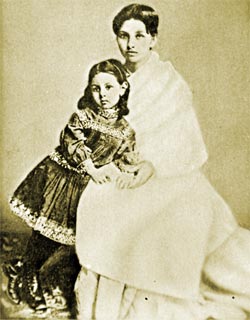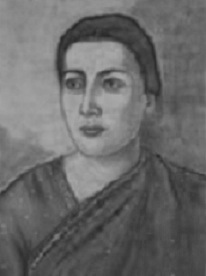Satsar (The Essence of Truth) was a journal which Phule tried to publish in 1885. Two issues were published, and both state Phule’s theological position. But also Satsar had another, more important purpose. Pandita Ramabai, a learned Sanskrit scholar from Pune, embraced Christianity in 1883 while in the USA. There was a storm of protest and condemnation in the brahmanical press of Pune. Phule used the columns of Satsar to defend her right to convert and to attack the fierce criticism of Ramabai even by the so-called modernizing and reformist brahmans. The two issues of Satsar constitute the only non-Christian defence of Pandita Ramabai; a brave act by someone who did not convert to any religion himself.
An excerpt from Satsar, 1885.
Yashwant Jotirao Phule: Tatyasaheb, in the first issue of Satsar you had asked a question to the brahmans regarding the Arya and brahman creators of the Hindu religion breathing fire on women and the shudras and atishudras and writing tyrannically about them. Which of these writings are about women? It would be very good if you explained them to me yourself.
Tatya: My child, your curiosity is somewhat genuine and commendable. Today because of the efficacy of the English rule and due to the efforts of Pandita Ramabai many great scholars among the brahmans felt ashamed […] If however we were to discuss the tyrannical writings of the mercilessly cruel Arya brahman writers and write about them in our pamphlet right in the beginning, it might prove disadvantageous in many ways. For, the moment the daughters of the brahmans realize the artful duplicities the books of the Arya writers had imposed on them, they will expose all the storytellers in the temples and disgrace them. Moreover, fearing that there will be constant arguments between mothers-in-law and daughters-in-law in the brahman families and they will give rise to all kinds of fights many brahmans will not allow their daughters and daughters-in-law to go to school and be in a position to read our Satsar. In this way instead of improving the conditions of these poor women, we will cause them sorrow.
Secondly, it was about three thousand years ago that the Arya writers of this country wrote a number of tyrannical pieces in their books. How will today’s orthodox brahmans understand the subtle manoeuvers in them? For, these days they have started to believe that all these books are eternal and have emanated straight from God. Moreover many brahmans and some shudras too, the moment they can read and write a little English, start a newspaper for their livelihood. The others begin to compose odd books and set up a shop to sell them. How will the editors of such newspapers and writers of books, who are interested in only filling their bellies understand the schemes in the books of the Aryas? These books are intended to confuse people so that they cannot discern true from false. We can also say that because of the misconceptions of those who work in the Education Department of this country the shudras and atishudras cannot even read. Very few of them can read a little. Therefore, excepting the few brahman scholars we do not know what the ignorant people will do by reading an imposter’s thoughtless writings.
Yashwant: What you say is right. From the example of Pandita Ramabai’s scholarship in Sanskrit and because of her guidance, the Hindu Mahila Samaj has acquired the status of a women’s society, many scholars felt that they should teach women English so they could acquire real knowledge. That is why with great effort they established a separate English school for women. The credit for all this should belong to Pandita Ramabai. Scholarly, thoughtful, kind and studious Ramabai went to England with a great determination to pursue English studies. However when she condemned the partisan Hindu religion and converted to Christianity many thoughtless editors of newspapers in Maharashtra abused the poor woman comparing her to the fox in Aesop’s tales. One naughty editor was so inflamed that he attacked all European women and blamed them by wildly misinterpreting traditional customs. The English gentlemen were immensely ashamed of this and as they were about to pick him up and send him to gaol, he readily repented, feigning madness and escaped by expiating the sin. Did he do right?
Tatya: My child, even before Pandita Ramabai came to Pune, Tarabai Shinde of Buldana wrote a book called Stree Purush Tulana. In this book she gave excellent advice to men, for most of them behave as they will and sinfully in the presence of their women. Naturally their respectable women feel bad, but since they are powerless and ignorant they are infuriated and great storms of bad deeds arise in their imagination. She (Tarabai) therefore decided to advise the menfolk. Her advice is a little stern and pungent, and an adamant editor of a newspaper did not like it. And because of this, or because he was afraid that if he tried to oppose the contents of her book the tables of vices mentioned in the book might turn against himself, he rejected all the advice in the book and repaid Tarabai’s debt by criticizing her. […]
~~~
Satsar
This booklet has been published by Jotirao Govindrao Phuley
in the public interest
Printed at Pune in Saujanya Press
1885
Copyright owned by the author
Price one anna
Translation by Urmila Bhirdikar
Source: Selected Writings of Jotirao Phule. Page 216-218
Images courtesy: The Internet

